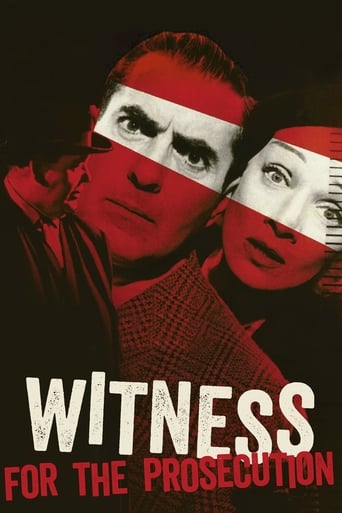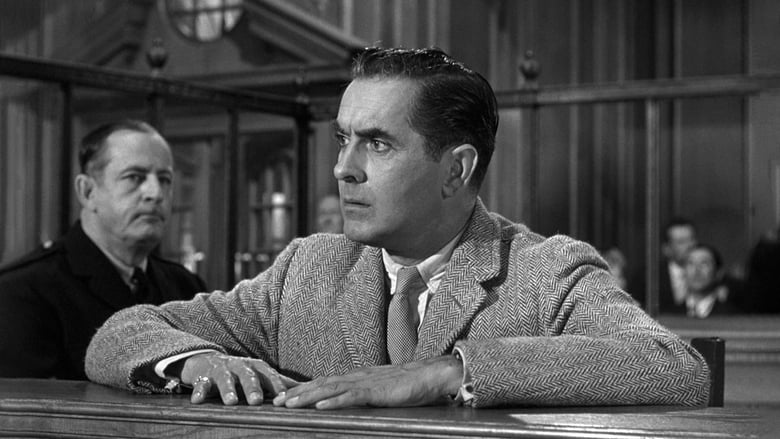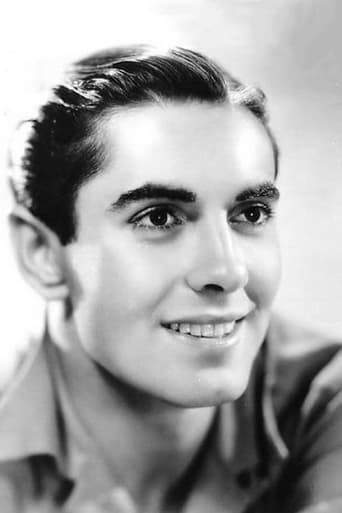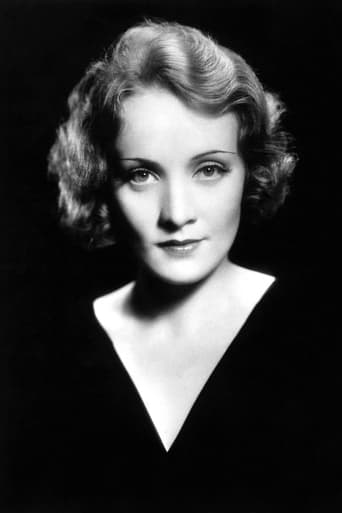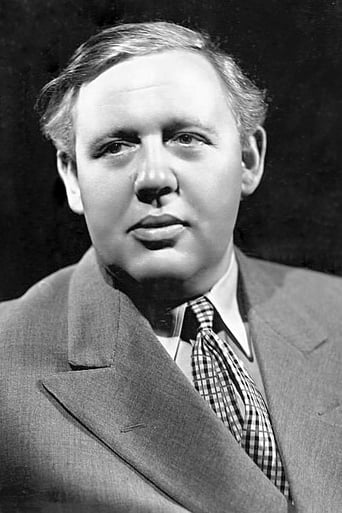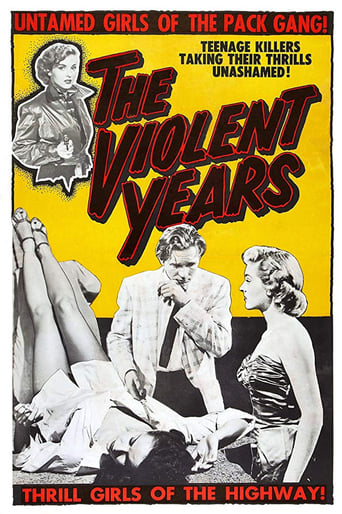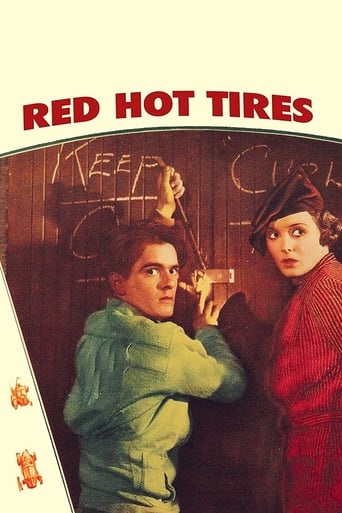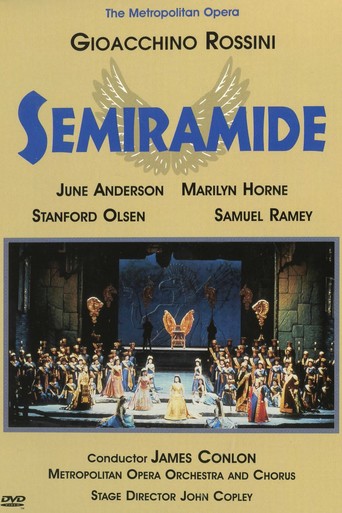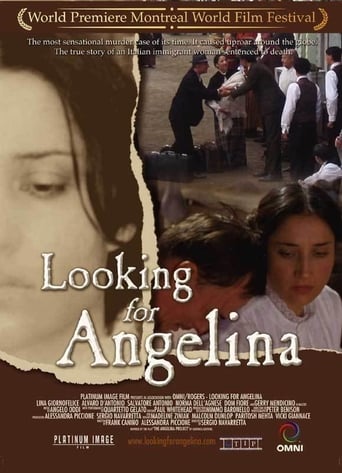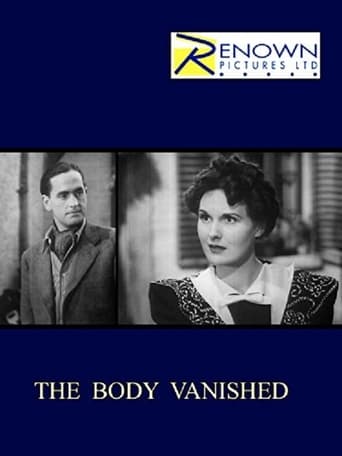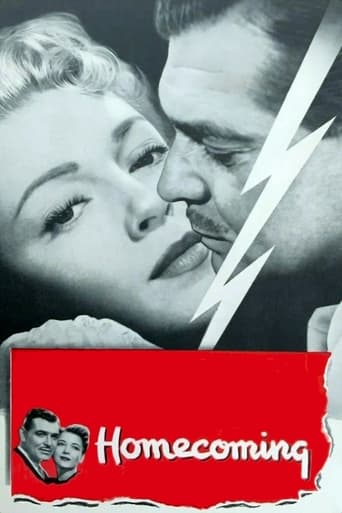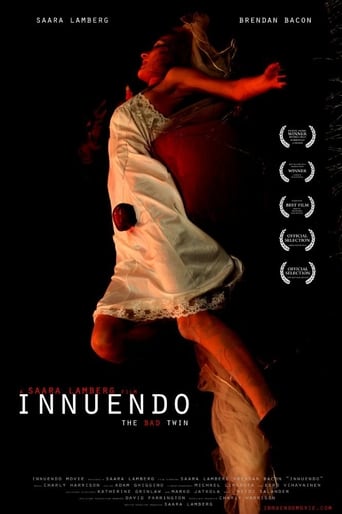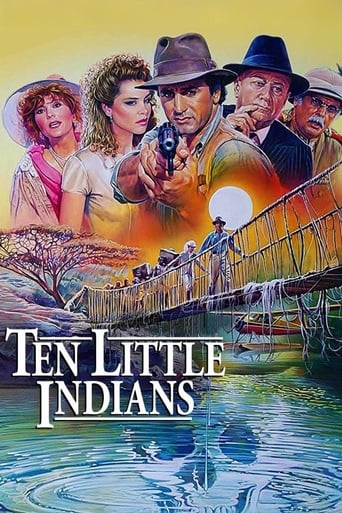Witness for the Prosecution (1957)
When Leonard Vole is arrested for the sensational murder of a rich, middle-aged widow, the famous Sir Wilfrid Robarts agrees to appear on his behalf. Sir Wilfrid, recovering from a near-fatal heart attack, is supposed to be on a diet of bland, civil suits—but the lure of the criminal courts is too much for him, especially when the case is so difficult.
Watch Trailer
Cast
Similar titles


Reviews
Sadly Over-hyped
Highly Overrated But Still Good
Captivating movie !
The film may be flawed, but its message is not.
Originally a short story by Agatha Christie, which was then adapted into a play, which then served as the basis for this film. A down on his luck fellow named Leonard Vole (Tyrone Power) befriends an elderly widow, who just happens to be loaded. She also happens to end up dead, with Leonard blamed for the murder. Enter one elderly barrister named Sir Wilfrid Robarts (Charles Laughton), who has just gotten out of a hospital after a lengthy stay due to reasons of excessive lifestyle and bad habits. But, the case intrigues him, so he takes Mr. Vole as his client despite the protests of his nurse.Most of these courtroom dramas follow a fairly predictable pattern. Not that other genres don't have their conventions and clichés, but courtroom dramas rarely even try to hide them or shy away from them. With them the pattern is the point of it. You want the predictability, to a certain degree. You want to play along and try to guess the final outcome. Likewise with this film. Most of the running time is spent going over the case, reviewing past events, getting to know the characters.And it works. Charles Laughton especially is a blast. Sir Wilfrid is a wreck of a human being. Man consumed by vice. But then the case starts and his cunning intellect is suddenly at the forefront, his gaze unwavering and sharp.This was also Tyrone Power's last film. He would die during the filming of his next movie. But, as far as swansongs go, this is not a poor legacy to leave behind.But then, the main point of these films. The ending, when something is suddenly revealed. A key point of evidence is found, a new witness appears, someone cracks on the bench. I absolutely don't want to spoil anything, but the original story is by Agatha Christie. Trust me when I say it's wonderful.Witness for the Prosecution is a gem of its genre. Professionally crafted and entertaining, with great characters and an ending that won't leave you disappointed.
This is actually a comedy, and its artificial intrigue and superficiality is all too transparent for anyone to be able to take it seriously. Yes, it's a murder trial, and murder is dead serious, especially since the punishment in 1952 still was death by hanging, but there are too many flaws in this case to make it credible at all. For example, if Tyrone Power didn't kill her, who did? No other candidate is ever presented, except a fabricated hypothesis of a possible thief, who anyway didn't rob anything, while the broken window clearly wasn't smashed from the outside for a break-in. The prosecutor fails to make this apparent conjecture clear as the absurdity it is and is all the way dwarfed by Charles Laughton as the lawyer.Agatha Christie was a very skillful writer, all her intrigues are logical and water-tight, but they are all superficial constructions. In comparison with Hitchcock's one great murder trial film. "The Paradine Case" (see my review) which is thoroughly organic all the way with very clearcut and convincing characters, each one humanly crippled by his own weakness, this one becomes no more than an entertainment. It is even regularly funny. Billy Wilder made some of the best films of Hollywood in his time, but at the same time all his films suffer from some non-convincing artificial superficiality. He is very seldom serious and can rarely be taken seriously, never in his later films, perhaps in his early ones, especially his maybe best film "Stalag 17" (see my review).Anyway, the film is exciting and enjoyable all the way, although they scream too much at court, also this is not very realistic, and the most enjoyable acting is between Marlene Dietrich and Charles Laughton. His wife Elsa Lanchester adds as usual a very personal touch to the comedy. It's well worth seeing again after some decades for its great entertainment value, but there are certainly more interesting murder cases on film, especially Hitchcock's very underestimated "Paradine Case".
The perfect movie for insomniacs like myself who caught this epic courtroom drama on TCM commercial free with no interruptions.Our story begins with a renown British Barrister Sir Wilfrid Roberts played by Charles Laughton. Sir Roberts, stout yet refined complete with monocle recovering from a recent heart ailment is cared for by his personal nurse Miss Plimsoll (Elsa Lancaster) who was in reality Laughton's real Wife. The arguments and condescending quips being thrown by Sir Roberts at the overbearing nurse was probably as close to the real home life of the Laughton's as you can get. Enter the distressed, accused, and care-warned Leonard Vole (Tyrone Power). Miss Plimsoll strongly objects to her personal patient taking on any cases after Sir Robert's ailment. Sir Roberts hears out Voles statement as the accused claims his innocents to the murder of Mrs. Emily French a rich older woman who was fond with Vole, infatuated as to go so far as to make him the beneficiary to her will. I Personally enjoyed the credible performance here by Power as I the viewer, was convinced of his innocence done so naturally and humbly, Unparalleled acting. Sir Roberts takes the case under the consternation of his dictatorial nurse yet smooth as silk in his retorts to his nurse were just as caustic which gave the film comic relief throughout the entire film entwined in this unique murder trial. Vole claims to Sir Roberts that his Wife would testify on his behalf. Enter the cold, self assured Mrs. Christine Vole (Marlene Dietrich) who tells Roberts and his colleagues a different story which quashes any alibi's for Vole. Vole is arrested swiftly and detained. The flashback scenes in Post-War Germany when Leonard talks about how a ceiling fell on him during his first meeting with Christine at a makeshift nightclub packed with eager G.I.'s who attacked her, ripped her pants. Dietrich showcases her talents with song and accordion. The trial begins with a cavalcade of familiar British heavy's known for television work in the 60's. Familiars like John Williams as Brogan Moore, (Robert's right hand in legal matters), who temporarily replaced Sebastian Cabot as the butler on the sit-com Family Affair. William exposure on American television was wide spread with a popular commercial for decades about classical masterpieces. Henry Daniell as Mayhew known to TV viewers as a frequent player in Boris Karloff's Thriller. Other familiars actors not born on the British Isles despite the queens tongue are Ian Wolfe as Carter known for his roles in Star Trek. The ever present Torin Thatcher as the Prosecutor Myers who was frequent guest on Science fiction related shows. Lost in Space,Time Tunnel, Voyage to the Bottom of The Sea and Star Trek. FYI last film for Tyrone Power who died a year later of a massive heart attack and last film for veteran actress Una O'Conner. Fabulous ending with tremendous shock value which felt like a Hitchcock film but Billy Wilder always gets lost in this masterpiece. His best directorial to date, but the book by Agatha Christy had more impact than the film but doesn't Hollywood always water-down screen plays to suit actors and budget. Laughton's performance was outstanding and that comedic timing impeccable.
WITNESS FOR THE PROSECUTION is a great courtroom drama that contains elements of thriller, mystery and dark comedy. The film is based on the short story and theater piece of the same name by Agatha Christie. A poor innovator was arrested for the sensational murder of a middle-aged and wealthy widow. The old and respected lawyer, despite ill health, can not resist this seemingly hopeless case. The case is further complicated when the wife of the accused agrees to testify against her husband...This serious courtroom drama is "mottled" with tense and comical dialogues at the same time. This approach, in addition to the standard tension, is causing a good mood. Mr. Wilder has managed to create an atmosphere where emotions are literally burning. This claim is justified by an explosion at the end of the film.Charles Laughton as Sir Wilfrid Robarts the senior counsel is stubborn, witty and determined patient or lawyer. He is an extremely charismatic and dominant character. His appearance is very funny in this movie. Marlene Dietrich as Christine Vole/Helm, the accused's wife is a key character in the story. I thought that this is another example of a femme fatale, but I was wrong. Ms. Dietrich is something special and it is a privilege to enjoy her appearance and performance.Tyrone Power as Leonard Vole, the accused is somewhat inconclusive. Maybe it was a deliberate spoof by Mr. Wilder. However, his laid back approach and mixed emotions during the trial seem unconvincing. Elsa Lanchester as Miss Plimsoll, Sir Wilfrid's private nurse is the nicest protagonist. Mr. Laughton in the fight against his wife for a cigarette and a glass of brandy. I would describe their relationship as a kind of story in the story.John Williams as Mr. Brogan-Moore, Sir Wilfrid's junior counsel in the trial remained in the shadow of his mentor. Humorous interruptions are also lacking. Una O'Connor as Janet McKenzie, Mrs. French's housekeeper and a prosecution witness has through small role revived some of my memories. I just enjoy every time while watching the little "chatterbox".Changes in mood and tempo, black humor that is ubiquitous, interesting and tense "fire" in the courtroom and excellent characterization are the advantages of this film.Simple, classic.
